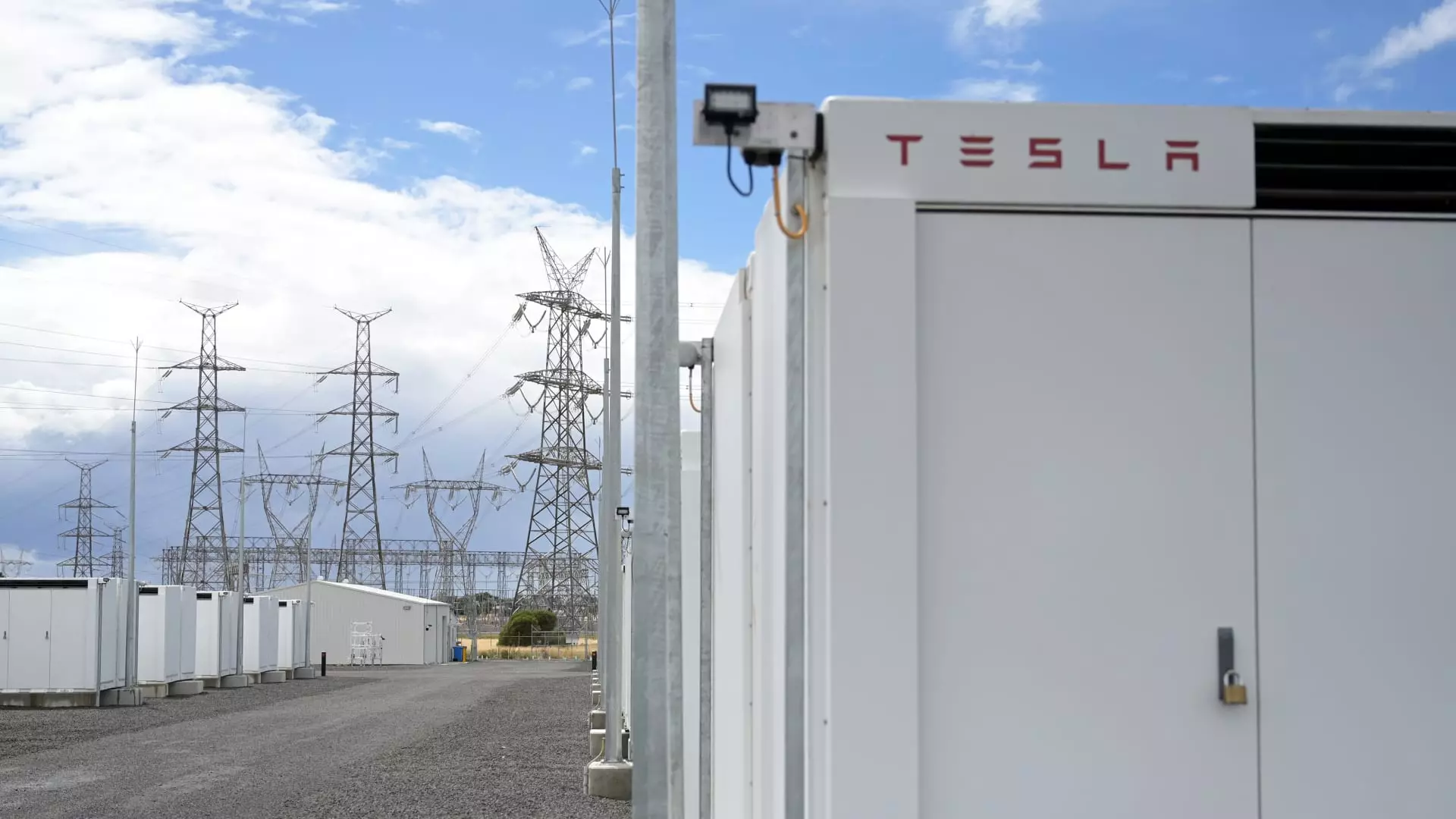In an electrifying development shedding light on the complexities of international trade, Tesla, the pioneering manufacturer of electric vehicles and energy storage solutions, has entered the Chinese market with an audacious plan. The company recently announced its first deal to construct a grid-scale battery power plant in Shanghai, valued at a staggering 4 billion yuan, or approximately $556 million. This venture, while monumental in itself, is also steeped in the complexities of geopolitical tension between the United States and China. As the U.S. government places tariffs on imports, the delicate balance of power in global trade becomes all the more scrutinized. Tesla’s ability to navigate these turbulent waters speaks volumes about its innovation and strategic foresight, yet it raises questions about the moral implications of business in a fractured political landscape.
A Technological Revolution in Energy Storage
Tesla’s foray into China’s energy landscape is not just about capital investment; it’s about reshaping how we think about energy consumption and storage. The company’s announcement that this project will emerge as the largest grid-scale battery initiative in China underscores the pressing need for effective energy management. These utility-scale battery energy storage systems act as the backbone of a city’s electricity supply—balancing the intermittent nature of renewable energy sources such as wind and solar, which rely heavily on weather conditions.
Tesla’s introduction of its Megapacks—expansive battery units capable of delivering 1 megawatt of power for up to four hours—is game-changing. The alignment of Tesla’s cutting-edge technology with China’s ambitious plans to ramp up battery-storage capacity to 40 gigawatts by 2025 illustrates a marriage of technological advancement and necessity. However, what this deal truly signifies extends beyond mere capacity; it is about redefining and elevating the role of energy storage in urban planning and infrastructure.
The High Stakes of Competition
While Tesla’s entry into the Chinese market can be viewed as a triumph for American innovation, it is essential to recognize the formidable competition posed by domestic giants such as CATL and BYD. These companies have carved out significant market shares, with CATL enjoying the lion’s share—approximately 40% of the global battery market. This stark reality underscores the precariousness of Tesla’s position in a competitive landscape where Chinese companies are not merely rivals but are fast becoming the benchmarks for battery technology and efficiency.
Moreover, Tesla’s dependence on CATL for battery cells underscores a pivotal irony—the very foundation of Tesla’s operations may rely on collaborating with companies that are often viewed as competitors. This symbiotic yet competitive relationship reveals a complicated truth about international commerce: collaboration and competition often intertwine, especially in the realms of technology and sustainability.
Navigating a Complicated Geopolitical Landscape
Tesla’s relationship with the Chinese authorities marks a critical juncture in U.S.-China relations. Eager to capitalize on emerging opportunities while simultaneously dodging the pitfalls posed by political tensions highlights an unnerving reality. The presence of former President Donald Trump’s tariffs complicates the narrative; if Tesla can thrive despite these barriers, it raises questions about the efficacy of protectionist rhetoric and policies. Elon Musk’s prior allegiance to the Trump administration adds another layer of complexity, offering insight into the tightrope walk that American companies must undertake amid volatile relations.
As Tesla solidifies its foothold in China, it stands as both a beacon of strategy and a case study in the ethical dilemmas inherent in global trade. It is crucial to acknowledge that doing business in a geopolitical framework rife with conflict calls for a nuanced view of economic relationships. Companies like Tesla have the potential to create significant pathways for progress, yet they also navigate murky waters where values collide with profitability.
Future Trajectory: An Energy-Driven Economy
The growing demand for grid-based battery installations in China reflects not just an energy transition but a broader shift toward a sustainable and resilient economy. As countries around the globe strive for cleaner energy solutions, Tesla’s engagement with the Chinese market takes on even greater importance. By forging ahead with this project, Tesla is not only contributing to local energy solutions but also playing a pivotal role in a larger narrative of energy independence and sustainability that transcends borders.
While the focus remains on technological advancement in battery storage, Tesla’s position underscores the interconnected nature of today’s economies. How effectively it can navigate these realities will shape not only its own future but could reverberate across global markets, making Tesla’s foray into China a pivotal chapter in the ongoing saga of sustainable energy and economic collaboration.

Leave a Reply